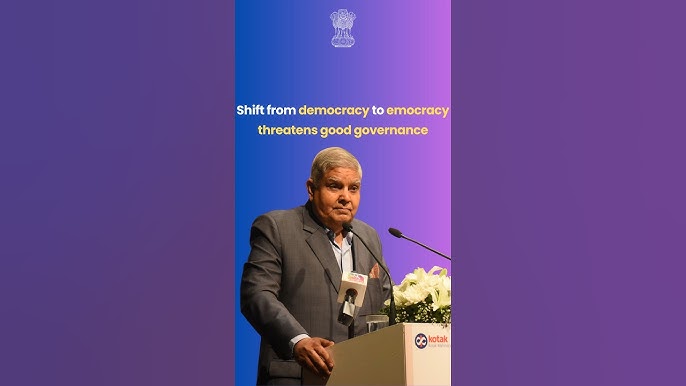- Courses
- GS Full Course 1 Year
- GS Full Course 2 Year
- GS Full Course 3 Year
- GS Full Course Till Selection
- Online Program
- GS Recorded Course
- NCERT (Recorded 500+ Hours)
- Polity Recorded Course
- Geography Recorded Course
- Economy Recorded Course
- AMAC Recorded Course
- Modern India, Post Independence & World History
- Environment Recoded Course
- Governance Recoded Course
- Science & Tech. Recoded Course
- International Relations and Internal Security Recorded Course
- Disaster Management Module Course
- Ethics Recoded Course
- Essay Recoded Course
- Current Affairs Recoded Course
- CSAT
- 5 LAYERED ARJUNA Mentorship
- Public Administration Optional
- ABOUT US
- OUR TOPPERS
- TEST SERIES
- FREE STUDY MATERIAL
- VIDEOS
- CONTACT US
The Waqf (Amendment) Bill, 2024
The Waqf (Amendment) Bill, 2024
- In August 2024, the Waqf (Amendment) Bill 2024 was introduced in the Lok Sabha by the Union Minister of Minority Affairs.
- The Bill renames the Act to ‘United Waqf Management, Empowerment, Efficiency and Development Act, 1995’.
- The Bill aims to significantly reform the Waqf Act of 1995, proposing comprehensive changes to the governance and regulation of Waqf properties in India.
What is a Waqf Property?
- A Waqf, also known as ḥabs or mortmain property, is a permanent charitable endowment (facility) established according to Islamic law.
- It involves the donation of personal property by Muslims for specific purposes, such as religious, charitable, or even private uses.
- Although the property is considered to be under the ownership of God, the benefits can be directed toward various beneficiaries.
- Formation of a Waqf: A Waqf can be established through a written deed, an instrument, or even verbally. A property can also be recognized as Waqf if it has been used for religious or charitable purposes over a long period.
- Once a property is declared as Waqf, its status is permanently altered and cannot be changed back.
Governance Structure for Waqfs in India
- Pre-Colonial Governance: The legal governance of Waqfs in India dates back to 1913 with the enactment of the Muslim Waqf Validating Act. This legislation was later replaced by the Mussalman Wakf Act of 1923.
- Post-Independence Governance: Following India’s independence, the Central Waqf Act of 1954 was enacted to regulate Waqfs.
- This Act was eventually replaced by the Waqf Act of 1995, which currently governs Waqf properties in India.
Major Provisions and Institutional Structure of the Waqf Act
- Survey Commissioner: The Waqf Act mandates the appointment of a survey commissioner who is responsible for cataloguing (listing) all Waqf properties.
- The commissioner conducts local investigations, summons witnesses, and gathers public documents to maintain this list.
- Mutawalli (Caretaker): The Act establishes the role of a Mutawalli, who serves as the caretaker and supervisor of Waqf properties.
- Management of Waqf Properties: Waqf properties are managed similarly to Trust properties as outlined in the Indian Trusts Act, 1882.
About Waqf Boards
- Waqf Boards are state government bodies that oversee Waqf properties within a state.
- Most states have separate Waqf Boards for Shia and Sunni communities, with almost all major mosques in India falling under the jurisdiction of a state's Waqf Board.
- Composition: The Waqf Board is led by a chairperson and includes members such as:
- One or two state government nominees
- Muslim legislators and parliamentarians
- Muslim members of the state Bar Council
- Recognized scholars in Islamic theology
- Mutawallis of Waqfs with an annual income of Rs 1 lakh or more
- Powers and Functions:
- Oversee the administration of Waqf properties and take action to reclaim any lost properties.
- Approve the transfer of immovable Waqf properties, such as through sale, gift, mortgage, exchange, or lease. This requires at least a two-thirds majority vote from the Waqf Board members.
About Central Waqf Council (CWC)
- The Central Waqf Council (CWC) was created in 1964 to supervise and guide state-level Waqf Boards across India.
- Functions:
- Offer advice to the central and state governments and Waqf boards on property management.
- Request performance information, including financial records and reports, from Waqf boards.
About Waqf Tribunal
- The Waqf Act allows for the creation of a Waqf tribunal by state governments to resolve disputes over Waqf properties.
- Under Section 6 of the Waqf Act 1995, the tribunal's decisions are considered final in disputes concerning a property's status as Waqf.
Key Changes Introduced by the Waqf Amendment Bill, 2024
|
Key Changes |
Waqf Act 1995 |
Waqf Amendment (Bill) 2024 |
|
Registration |
No requirement for mandatory registration. |
Mandatory registration of Waqf properties with the District Collector’s Office for proper evaluation. |
|
Formation of waqf |
- |
Introduces a new rule stating that only a lawful property owner who is competent to transfer or dedicate the property can create a Waqf. The Bill states that only a person practicing Islam for at least five years may declare a waqf. |
|
Recognition of Govt. Properties as Waqf |
- |
Government properties identified as Waqf, either before or after the Act’s implementation/commencement of the act, will not be classified as Waqf properties. |
|
Dispute Resolution Regarding Government Land as Waqf |
The Waqf Tribunal handled disputes. |
The District Collector is now responsible for determining whether a property is Waqf or government land. The Collector’s decision is final, with updates to revenue records and reports to the state government. |
|
Oral Recognition of Waqf |
Allowed properties to be considered Waqf based on oral recognition. |
Eliminates oral declarations as a basis for Waqf recognition. Properties without a valid waqfnama will be considered suspect or disputed and remain inactive until a final decision is made by the District Collector. |
|
Waqf by Use |
Included provisions for Waqf by use, allowing a property to be considered Waqf based on its usage even if the original declaration was questionable. |
Removes provisions for "Waqf by use," making any Waqf property without a valid waqfnama suspect. |
|
Appeal Mechanism |
The Waqf Tribunal’s decisions were final. |
Decisions by the Waqf Board can now be appealed in high courts. |
|
Audit of Waqfs |
No provisions for auditing. |
Grants the central government the authority to order audits of Waqf properties, conducted by auditors appointed by the Comptroller and Auditor-General of India or other designated officers. |
|
Composition of Waqf Boards |
No women or non-Muslim members were allowed. |
Allows for the appointment of a non-Muslim CEO and includes at least two non-Muslim members on the state Waqf Boards. |
Need for Amendments to the Waqf Act of 1995
- Improving Transparency: Amendments aim to address mismanagement and corruption in Waqf Boards by enhancing transparency in their financial and administrative operations.
- Reducing Property Disputes: Clear definitions and mandatory verification of property claims are introduced to minimize disputes over Waqf properties.
- Resolving Jurisdictional Issues: Changes are intended to align Waqf Tribunal decisions with principles of natural justice, addressing the inability to appeal in civil courts.
- Promoting Women's Empowerment: Inclusion of women as Waqf Board members is proposed to enhance representation and empowerment.
Concerns About the Waqf (Amendment) Bill 2024
- Infringement (breach) on Religious Rights: The bill is seen as violating Article 25 by limiting the Muslim community's autonomy over religious affairs.
- Increased Government Oversight: Greater government control over Waqf properties, including district collector involvement, may lead to bureaucratic delays and overreach.
- Non-Muslim Inclusion: Including non-Muslims in Waqf Boards could compromise the religious integrity and cultural understanding of these bodies.
- Higher Risk of Disputes: Shifting authority from Waqf Tribunals to district collectors may increase disputes and complicate legal processes.
- Lack of Stakeholder Input: The bill faces criticism for being drafted without sufficient consultation with the Muslim community and key stakeholders.




